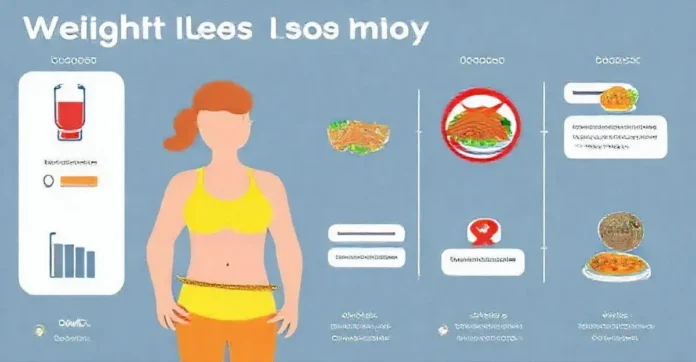How Alcohol Consumption Can Impact Your Weight Loss Journey
Embarking on a weight loss journey often involves making various lifestyle changes, including dietary adjustments and increased physical activity. But have you considered how your drinking habits could be influencing your progress? In this article, we delve into the relationship between alcohol intake and weight loss, shedding light on whether that glass of wine or pint of beer could be hindering your efforts to slim down.
**How Alcohol Consumption Impacts Weight Loss**
Understanding the Connection Between Alcohol and Weight Loss
Alcohol consumption can profoundly impact weight loss efforts due to its high caloric content and effect on metabolism. According to research from the National Institute on Alcohol Abuse and Alcoholism (NIAAA), alcoholic beverages can hinder weight loss by adding excess empty calories to your diet, leading to weight gain over time. To learn more about the specific ways alcohol consumption affects weight loss, visit GrowthPixel for comprehensive information and studies on this topic.
Finding Lower Calorie Alternatives for Healthier Choices
When trying to lose weight, opting for lower-calorie alcoholic drinks can help you enjoy social occasions while managing your caloric intake. Websites like MyFitnessPal offer alcohol calorie calculators to help you make informed choices when selecting beverages. By substituting high-calorie cocktails with lower-calorie options, you can better align your drinking habits with your weight loss goals.
Tracking Alcohol Consumption for Accountability
To effectively manage alcohol intake while aiming to lose weight, consider using apps like Lose It! or MyPlate. These apps allow you to track your daily alcohol consumption along with your food intake, providing insights into your overall caloric intake. By monitoring your alcohol consumption, you can make adjustments to stay within your weight loss targets while still enjoying an occasional drink.
**Strategies for Incorporating Exercise into Your Weight Loss Plan**
Importance of Physical Activity
Exercise plays a crucial role in any weight loss journey, as it helps burn calories, increase metabolism, and improve overall health. By incorporating regular physical activity into your routine, you can enhance the effectiveness of your weight loss efforts. Whether it’s cardio, strength training, or flexibility exercises, moving your body is essential for achieving and maintaining a healthy weight.
Creating a Workout Schedule
To successfully include exercise in your weight loss plan, it’s important to create a workout schedule that suits your lifestyle and preferences. Find activities that you enjoy and are sustainable in the long term. Aim for at least 150 minutes of moderate-intensity exercise per week, spread out over several days. Setting specific goals and tracking your progress can also help you stay motivated and make exercise a priority.
Combining Exercise with Healthy Eating
Pairing regular exercise with a balanced diet is key to successful weight loss. Make sure to fuel your body with nutritious foods that support your workout routine. Prioritize whole foods, lean proteins, fruits, and vegetables to provide the energy and nutrients needed for physical activity. Drinking water before and after workouts is also essential to stay hydrated and optimize performance.
Finding Accountability Partners
Having a support system can make a significant difference in staying consistent with your exercise routine. Consider working out with a friend, joining fitness classes, or hiring a personal trainer to keep you accountable and motivated. Sharing your progress and celebrating achievements with others can boost your confidence and commitment to reaching your weight loss goals.
Exploring Different Types of Exercise
Variety is key to preventing boredom and plateaus in your fitness journey. Explore different types of exercise, such as HIIT workouts, yoga, swimming, or cycling, to keep your body challenged and engaged. Mixing up your routine not only prevents monotony but also targets different muscle groups and promotes overall fitness and weight loss.
Conclusion
Understanding the impact of alcohol consumption on weight loss is crucial for achieving successful results. Alcohol’s high caloric content and its effect on metabolism can hinder weight loss efforts over time by adding excess empty calories to your diet. To effectively manage alcohol intake, consider opting for lower-calorie alcoholic drinks and tracking consumption with apps like Lose It! or MyPlate.
Pairing regular exercise with a balanced diet is key to maximizing weight loss outcomes. By creating a workout schedule that suits your lifestyle and preferences, you can incorporate physical activity as a vital component of your weight loss plan. Aim for at least 150 minutes of moderate-intensity exercise per week and combine it with healthy eating habits for optimal results.
Finding accountability partners and exploring diverse types of exercise can enhance motivation and prevent monotony in your fitness journey. Establishing a support system, trying different workout routines like HIIT, yoga, or swimming, and celebrating achievements with others can boost your commitment to reaching your weight loss goals. By prioritizing a holistic approach that combines mindful drinking habits with regular exercise, you can pave the way for sustainable weight loss success.
